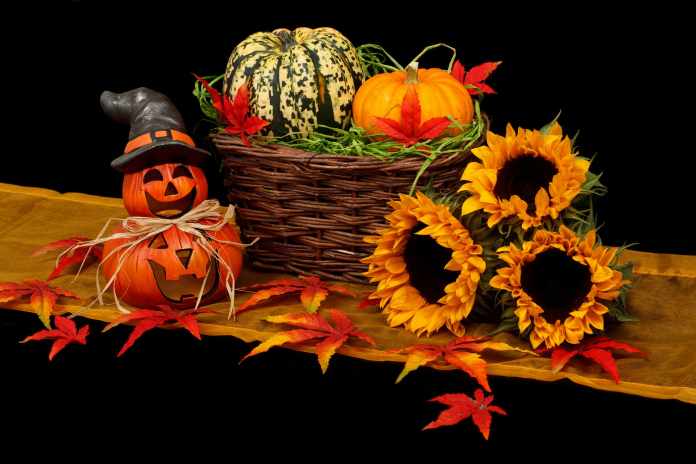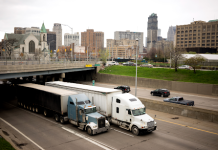Halloween enthusiasts world-wide have been trying to book rooms in Salem hotels, Massachusetts, for 2020. The only reason for such a rush is that there will be an ultra-eerie blue moon on Halloween this year, raising the spine-chilling level. Anyway, Salem is the heart of the US Halloween celebration, and the blue moon will resemble the witch trials of 1692. The streets of Salem with all the red-bricks transforms into a supernatural world for the month of Halloween. Usually, there are parades, haunted house parties, and crusades every year. However, Halloween during COVID 19 will not be the same!
Halloween in Salem is nothing but heartbreak for over half-million a visitors who were planning for the day. COVID-19 and the global pandemic is spreading more with time and is threatening enough for everyone. Therefore, all the big-scale events will not take place. Moreover, there will be no trick-or-treating, a Halloween tradition will also not happen this year. The costume balls and street performances will also be very different this year. Altogether, Halloween during COVID 19 will witness lesser crowds and a much quieter atmosphere. Everyone is trying to adhere to the pandemic guidelines for a safer celebration.
Table of Contents
Halloween during COVID 19: Salem is gearing up for a massive task
30% of the $140 million annual visitations of Salem comprises of secular tourism. Moreover, it is also almost 50% of the business revenue of the area. However, according to the national estimation of 2020, the income from tourism will be less than half. The executive director of Salem’s marketing organization, Kate Fox, believes that the situation will take at least a few years to get back to normal. Therefore, while the US infection rate is increasing rapidly, it is a danger sign for all industries and individual businesses that rely on tourism for survival. They are now having to think of various other ways to revive their business using those approaches.
It seems the task in front is massive, and controlling Halloween’s infection risk during COVID-19 is difficult. The occasion means children will be running from one door to another with sticky hands wet with chocolates and sugar from candies. It is one of the most severe risks of virus-spread, if there is not much to control. However, it is finally a relief to hear that businessmen are already trying to accept the new normal.
According to candy retailers, tourism, pumpkin sellers, and costume shops, they have found a way to revive the business. They believe that sales will be better than expected by the end of October because people are desperate to celebrate occasions after much gloominess throughout the year.
Halloween celebrations are still on!
Since the Halloween craze in the 19th century, traditions such as trick-or-treating, costume contests, and pumpkin carving have become a part of American culture. It is now more than just a celebration in the country because this is the way of life. Therefore, even before the beginning of Summers here, decorations and sweets are already on the shelves, and people start purchasing pumpkins. Moreover, the costume shops also start reopening because people want to plan and choose their outfit for Halloween events in advance.
In this context, the season’s expenditure witnesses a very significant jump with the last decade itself. The average expenditure was $5bn in 2006, and in 2019, it was around $9bn. The Halloween revenue accounts for the annual earnings of several major retailers and small businesses too. Although the increasing spread of the novel coronavirus is indeed threatening, people are trying to overcome it. Despite wariness in Americans when it comes to participation in Halloween activities and shopping, the celebration is on!
According to a survey report of the NRF (National Retail Foundation), the Analytics and Prosper Insights reveal the real picture of the preparations. It seems that only 58% of Americans are willing to celebrate Halloween this year. Therefore, the rate of people who want to celebrate is around 68% lower than last year. However, the case is the opposite when it comes to expenditure. This year, an average person willing to participate in Halloween celebration is likely to spend around $92. Now, there is a $6 hike from the average per person Halloween expenditure of last year.
Halloween during COVID 19 will be more memorable for Americans.
According to the senior director of NRF’s industry and consumer insights department, Katherine Cullen, celebrating events is now more meaningful for people. She feels that people are fed up with living in isolation and away from everyone. Moreover, the gloominess of the situation right now makes celebrations the breath of fresh air for people. Cullen seems to be stating facts based on survey reports that her team is collecting since the beginning of the year.
The celebration trend seems to get better with everyone approaching the end of 2020. While the trend was almost static during Easter, an average person spent around $8 extra on Mother’s Day. It feels like every person is trying to recreate a situation of normalcy for the families and themselves. Moreover, festivals and celebrations are better ways to embrace normalcy during touch situations as now.
On the other hand, the industry’s overall Halloween expenditure is supposed to drop down to $8bn. However, most Americans are willing to purchase Halloween products, such as decorations and sweets, at the same prices. Therefore, there is speculation that the revenue from Halloween sales will remain stable until everything gets back to normal in America.
Katherine Cullen states that Halloween during COVID-19 will indeed be very different, but we can still celebrate. For example, indeed, kids will not be able to visit houses collecting candies or attend parties. However, every family can plan their events, dress up, and decorate their gardens and front-yards for sure! Also, there is nobody who can resist those sweet little Halloween candies.
The overall business scenario of the season
Now, the question is that if people won’t be trick-or-treating before Halloween this year, what will these businesses do? Several industries are dependent on people purchasing sweets and candies in advance. For example, the senior director of Seasons in Hershey’s, Alex Corcoran, reveals a bit of the situation.
The company that produces the best chocolates such as KitKat, Reese’s kisses, and peanut butter cups reveals how they were just two weeks away from receiving Halloween orders when the news of the pandemic broke. Sales were still massive during Easter. However, the company indeed faced an enormous loss by the end of that season. Now, they took it as a lesson to apply it for their Halloween production.
Corcoran says that they were well aware that Americans won’t purchase as much as sweets this year for Halloween. Therefore, they resorted to other ways to keep their usual business afloat. Hershey’s is now selling bulk packs at a much lower price, and the discounts are still attracting a lot of people. According to the President of US sales and the chief Halloween officer, Tim Lebel, Mars Wrigley is also adapting the same method. The company that is famous for its Skittles and Snickers, and M&M’s are solely focusing on their bestsellers. Therefore, understanding the situation and the change in customer behavior is helping chocolate companies prevent the slowing down of annual sales.
How is the situation for smaller industries and businesses?
According to Lebel, in August, many Americans were visiting grocery stores to purchase chocolates and sweets for Halloween in advance. Therefore, during that month, there was a massive 13% rise in Halloween sales compared to that of the last year. Lebel is correct when he says that he believes people generally like to resort to their comforts when severe. Therefore, people are indeed planning to celebrate smaller and more personal events despite no trick-or-treating th8is year. However, not all industries dependent on Halloween sales are faring so well in 2020.
While more prominent companies such as Mars Wrigley and Hershey’s is making changes to their business plans, not all smaller industries can do the same. For the latter, there are not enough resources that they make massive changes to their sale strategies. Therefore, their only hope is that Halloween celebrations take place usually.
For example, the Halloween costume retailers can only depend on customers who turn up during the Halloween month. However, the NRF study reveals that the rate of willingness to purchase costume is not decreasing much. Moreover, considering the new COVID-19 regulations, costume retailers are selling masks matching with outfits too. Therefore, people who are visiting shops searching for perfect Halloween costumes also end up buying matching masks. It is an additional benefit to the sellers during these dire situations.
There is a solution to every problem.
According to the Executive Director of the National Costumers Association, Ed Avis, there are still a few struggles. Of course, the smaller businessmen are finding it hard to keep up with their popular competitors’ strategies. However, Avis still believes that the approximately 100 independent costume retailers there will be able to fend for themselves. He is sure that people want more costumes despite a quieter Halloween during COVID 19. Therefore, the revenue will not be too less for the less popular retailers as well.
Halloween-oriented businesses must find ways to keep surviving this year. However, the passion for the day is more than the survival desperation. Therefore, everyone is trying to think creatively to make October 31, 2020, better than other years. Coming back to Salem, guests who manage to come down to the city will still be able to enjoy a different Halloween during COVID 19. They can enjoy walking tours of the haunted places, other activities such as tarot-reading. There will also be costume competitions and Halloween pet parades. However, one thing that will be constant in all cases is the adherence to COVID-19 guidelines.








